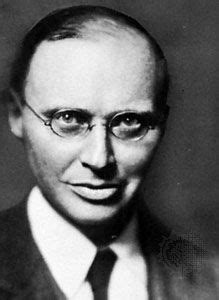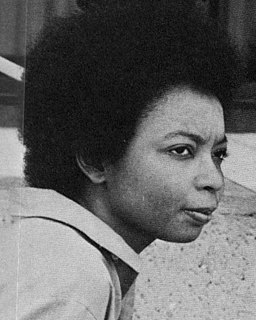A Quote by Clarence Day
The first thing the world does to a genius is to make him lose all his youth.
Related Quotes
Why prove to a man he is wrong? Is that going to make him like you? Why not let him save face? He didn't ask for your opinion. He didn't want it. Why argue with him? You can't win an argument, because if you lose, you lose it; and if you win it, you lose it. Why? You will feel fine. But what about him? You have made him feel inferior, you hurt his pride, insult his intelligence, his judgment, and his self-respect, and he'll resent your triumph. That will make him strike back, but it will never make him want to change his mind. A man convinced against his will is of the same opinion still.
For me, there are two different things that make Sherlock Sherlock. One is, you know, within the books: obviously he's a genius with an attention to detail, his ravenous hunger for all aspects of knowledge that might feed into his work. But the major thing that makes him Sherlock is his relationship with Watson - their friendship. For me, that, I guess, is the biggest side, the more interesting side than the genius.
The great genius does not let his work be determined by the concrete finite conditions that surround him, whilst it is from these that the work of the statesman takes its direction and its termination. ... It is the genius in reality and not the other who is the creator of history, for it is only the genius who is outside and unconditioned by history.
I don't like that word 'discovery.' ... Sinatra was the first one to call Ray Charles a genius, he spoke of 'the genius of Ray Charles.' And after that everybody called him a genius. They didn't call him a genius before that though. He was a genius but they didn't call him that. ... If a white man hadn't told them, they wouldn't've seen it. ... Like, you know, they say Columbus discovered America, he didn't discover America.
The analytical writer observes the reader as he is; accordingly, he makes his calculation, sets his machine to make the appropriate effect on him. The synthetic writer constructs and creates his own reader; he does not imagine him as resting and dead, but lively and advancing toward him. He makes that which he had invented gradually take shape before the reader's eyes, or he tempts him to do the inventing for himself. He does not want to make a particular effect on him, but rather enters into a solemn relationship of innermost symphilosophy or sympoetry.
Another editor. That thing behind his ear is his pencil. Whenever he finds a bright thing in your manuscript he strikes it out with that. That does him good, and makes him smile and show his teeth, the way he is doing in the picture. This one has just been striking out a smart thing, and now he is sitting there with his thumbs in his vest-holes, gloating. They are full of envy and malice, editors are.
... the first thing his education demands is the provision of an environment in which he can develop the powers given him by nature. This does not mean just to amuse him and let him do what he likes. But it does mean that we have to adjust our minds to doing a work of collaboration with nature, to being obedient to one of her laws, the law which decrees that development comes from environmental experience.
There is no such thing as a good influence. Because to influence a person is to give him one's own soul. He does not think his natural thoughts, or burn with his natural passions. His virtures are not real to him. His sins, if there are such thing as sins, are borrowed. He becomes an echo of someone else's music, an actor of a part that has not been written for him.
When you want to direct someone toward the good, first put him at peace bodily and honor him with words of love. For nothing inclines such a man to shame and induces him to cast of his vice and be changed for the better as do bodily goods and honor, which he sees in you. Then, with love tell him a word or two, and do not be inflamed with anger toward him. Do not let him see any cause of enmity toward you. For love does not know how to lose its temper.
In youth it is the outward aspect of things that most engages us; while in age, thought or reflection is the predominating qualityof the mind. Hence, youth is the time for poetry, and age is more inclined to philosophy. In practical affairs it is the same: a man shapes his resolutions in youth more by the impression that the outward world makes upon him; whereas, when he is old, it is thought that determines his actions.
THE SUFFERING OF GENIUS AND ITS VALUE. The artistic genius desires to give pleasure, but if his mind is on a very high plane he does not easily find anyone to share his pleasure; he offers entertainment but nobody accepts it. That gives him, in certain circumstances, a comically touching pathos; for he has no right to force pleasure on men. He pipes, but none will dance: can that be tragic?



































